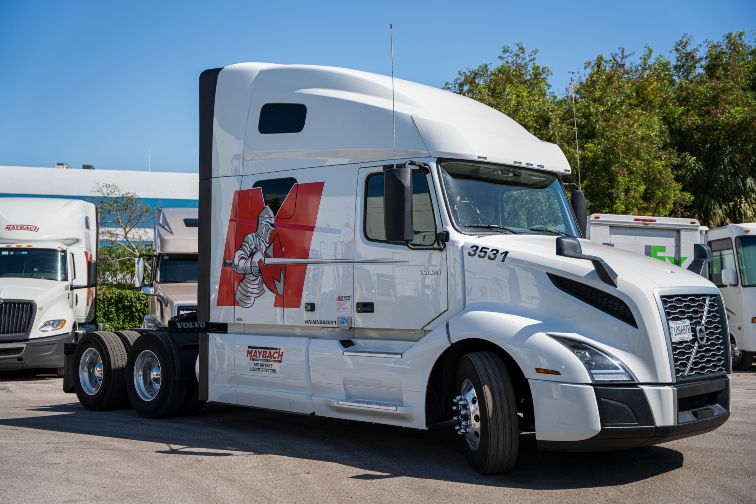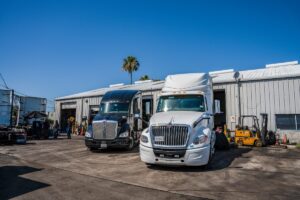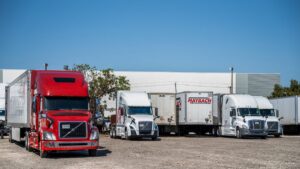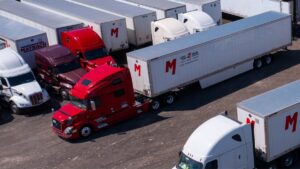The trucking industry plays a pivotal role in the global supply chain. Within this vast sector, two primary types of drivers dominate the roads: owner-operators and company drivers. The distinction between owner operator and company driver is crucial for anyone considering a career in trucking or those simply curious about the industry’s inner workings. While both roles involve driving large vehicles and ensuring the safe delivery of goods, their responsibilities, benefits, and challenges differ significantly. This article delves into the nuances of the “company driver vs owner operator” question in order to understand their unique positions in the trucking world.
What is an Owner Operator?
An owner-operator is an individual who owns and operates their own trucking business. Instead of being employed by a larger trucking company, they are independent entrepreneurs who invest in their vehicles, handle their expenses, and manage their operations. This means they can choose which loads to haul, negotiate their rates, and decide their routes. The “owner-operator vs company-driver” debate often centers on this autonomy. Subcontractors, while not fully independent like owner-operators, also enjoy a significant degree of freedom within their work arrangements. They typically work with transport companies but still have the opportunity to negotiate rates, select preferred routes, and exercise a level of independence in their operations.
While being an owner-operator offers greater profit potential, it also comes with increased responsibilities, such as maintenance costs, insurance, and business management. Their success hinges on their ability to run their own small business efficiently.
Read more about what is an owner-operator here.
What is a Company Driver?
A company driver is an individual a trucking company employs to drive their vehicles and transport goods on their behalf. Company drivers don’t own their trucks. Instead, they receive a set salary or are paid by the mile, and the trucking company they work for handles the operational costs, including vehicle maintenance, insurance, and fuel. The company also determines their drivers’ routes, schedules, and loads. While company drivers might have less autonomy than owner-operators, they also have fewer overhead responsibilities and often benefit from consistent pay, company-provided benefits, and a more predictable work schedule.
Company Driver vs Owner-Operator – The Main Differences
The trucking industry’s landscape is vast, and understanding the distinctions between an owner-operator and a company driver is essential. Here’s a breakdown:
Independence
Owner-operators enjoy a higher degree of independence. They can choose their clients, negotiate rates, and set their schedules. Subcontractors, while typically working for other transport companies, still enjoy a substantial level of independence. Company drivers, on the other hand, follow the directives of their employers, which can mean less freedom but more stability.
Being in Charge
Being an owner-operator means being in charge of your own business. From maintenance to client relations, they handle it all. Company drivers focus primarily on driving and following company protocols.
Profitability
Owner-operators have the potential for higher earnings since they set their rates. However, they also bear all business expenses. Company drivers might earn a consistent salary but don’t have the same earning potential as owner-operators.
Flexibility
Flexibility is a significant advantage for owner-operators. They can take breaks or vacations as they see fit. Company drivers, however, have set schedules and might not enjoy the same flexibility.
Responsibilities
With freedom comes responsibility. Owner-operators manage everything from truck maintenance to accounting. While responsible for safe driving, company drivers don’t have to worry about the broader business aspects.
In the context of long-haul trucking, owner-operators often have the flexibility to choose longer routes, potentially increasing their profitability. This choice, however, comes with its own set of challenges and responsibilities, making it essential to weigh the pros and cons before diving into the world of long-haul trucking as an owner-operator.
Comparison – What is Better?
The question of “owner operator vs company driver” isn’t about which is universally better but better suited for an individual’s goals, preferences, and circumstances. Here’s a comparison to help you decide:
- Initial Investment: Owner-operators need a significant upfront investment to purchase their truck, whereas company drivers don’t have this financial burden.
- Earning Potential: While owner-operators can earn more by setting their rates, they also face the risk of inconsistent income, especially during slow periods. Company drivers typically receive a steady paycheck.
- Job Security: Company drivers often benefit from job security, regular benefits, and set schedules. Owner-operators, being their bosses, can choose their jobs but face the uncertainties of entrepreneurship.
- Operational Costs: Owner-operators bear all operational costs, from maintenance to fuel. Company drivers don’t have these expenses, as their employer covers them.
- Work-Life Balance: Owner-operators have the flexibility to set their schedules, which can benefit work-life balance. However, the responsibility of running a business can also be time-consuming. Company drivers have more predictable schedules but might have less flexibility.
- Growth Opportunities: As entrepreneurs, owner-operators have the potential to expand their business, owning multiple trucks and hiring other drivers. Company drivers might have opportunities for promotions within their company.
For More Information: Pros and Cons of Being an Owner-Operator
Conclusion
The trucking industry is a cornerstone of global commerce, with owner-operators and company drivers playing integral roles in its success. The “owner-operator vs company-driver” decision is not a one-size-fits-all answer. It’s a deeply personal choice that hinges on one’s financial goals, risk tolerance, desire for independence, and appetite for responsibility. Owner-operators embrace the entrepreneurial spirit, taking charge of their destiny, while company drivers enjoy the stability and structure provided by established trucking firms. As the industry evolves, both paths will offer unique opportunities and challenges. Ultimately, the best choice is the one that aligns with an individual’s aspirations and lifestyle. Whether you’re considering a career shift or simply curious about the industry’s dynamics, understanding these roles is key to appreciating the vast world of trucking.







